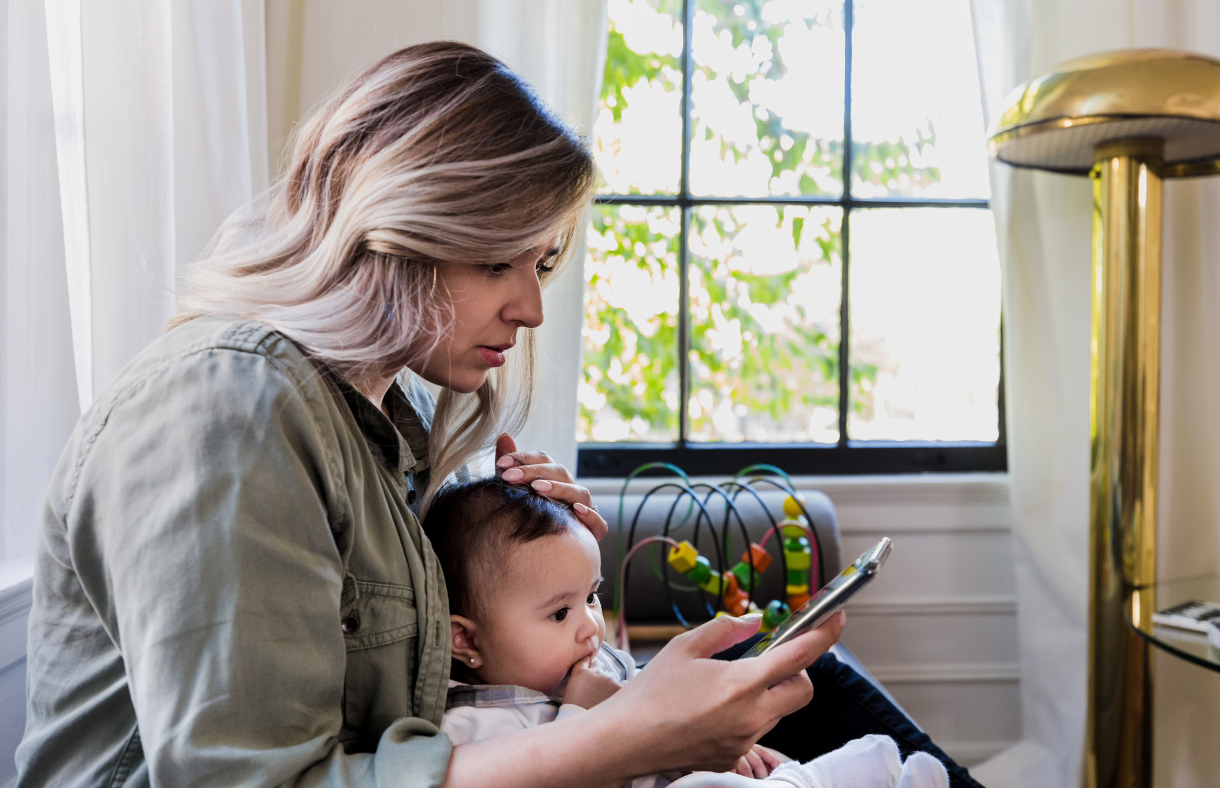A special Happy Mother’s Day to all hardworking moms!
Remember the family images in classic sitcoms? Every mother a full-time housewife who had it all together; every kid healthy and happy; every grandparent a bottomless source of wisdom and encouragement, with no needs of their own.
If that image once seemed plausible (at least to Anglo suburbanites), it’s unlikely to fool anyone today. The mom of the 2020s—whether or not she has a husband/partner to bring in income—is more likely to be chronically tense from juggling her own salaried job with housekeeping and parenting duties. If there are grandparents in the picture, they often need caretaking as much as the children do. On top of which, nearly one in five U.S. children—in over 28 percent of parent(s)-with-children households—have at least one disability or special health care need.
Fortunately, the modern mother has at least one advantage over previous generations: apps and other assistive tech to help manage the load.

How to Cope with Disability in the Family
For an inside view of the situation, BridgingApps consulted Susan Stotzer, whose life includes helping her parents and mothering a 15-year-old daughter with intellectual disability.
Q: What are your favorite assistive-tech options for keeping your responsibilities organized, and your family schedules coordinated?
Susan: I use a phone app called Things for my To Do lists: the app syncs to my laptop. I organize my To Dos into iPhone, Online, Home, and Errands:
- iPhone tasks are calls/texts to make or return.
- Online tasks include things like email, online forms, and online shopping.
- Home tasks are usually things like repairing a broken toy or ironing something for a special occasion.
- Errands are, obviously, errands I need to run.
I find it helpful to be able to scan all the tasks within one category. If I’m going to the grocery store, for example, I can click on Errands to see if there’s another errand I should run while I’m out.
To further stay on top of my schedule, I use Apple’s online calendar to create color-coded calendars for different types of events. For example, I have one color for my daughter’s school and extracurricular activities (I also use Calendar’s “invite” feature to alert my husband to things he would want to attend) and another color-coded calendar for my own gym classes. It helps keep me motivated to go to the gym, seeing those classes staring out from my calendar!
Q: What assistive tech does the rest of your family use?
Susan: My daughter, Cassie, uses the TouchChat app on her iPad to communicate. She also loves the movies, TV shows, and games we’ve installed on the iPad.
For my parents, who aren’t very technologically savvy, I set up an iPhone shared photo album for pictures of my daughter’s school and extracurricular events. A family member in another state gave them a digital photo frame (Aura) that we all use to keep our family connected. My parents also like Alexa.
Aside from digital assistive technology, we’ve been going for ten years to an adaptive sports program in Telluride, Colorado. In the summer, Cassie enjoys stand-up-paddleboarding; in the winter, it’s skiing. I remember she was very resistant to the idea of skiing at first, so the instructors pushed her down a ski run on a bi-ski and she had a blast. From there, she learned to ski with her instructors by using a slider. Now she’s using tethers.
Q: Any other tips for living a balanced life with disability in the family?
Susan: I do the more difficult tasks while Cassie is at school, and save afternoons and weekends for things I can do with her. For example, she loves to ride in the car but isn’t always keen to go inside a store, so drive-through errands, such as picking up prescriptions or visiting the car wash, get done on the weekends. She also loves the water, so my husband takes her along when he goes to the neighborhood pool to swim laps. They go when the pool isn’t crowded, then she stays in his lane and he can keep an eye on her while getting his own workout in.
Additional Resources
- BridgingApps Educational App List for Ages 2–7
- BridgingApps Organization and Executive Functioning List
- BridgingApps speech therapy apps lists
- Parenting apps from BridgingApps database
- Telehealth platform options
- When Your Parent(s) and Your Child(ren) Have Special Needs

